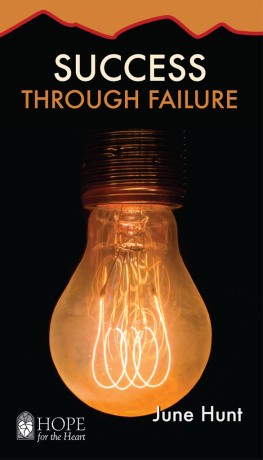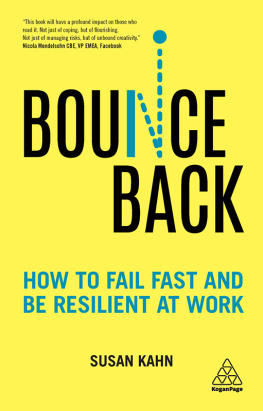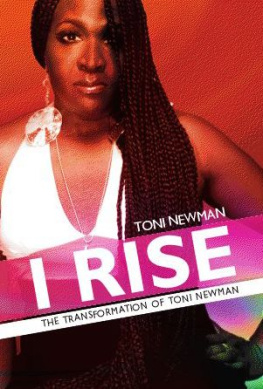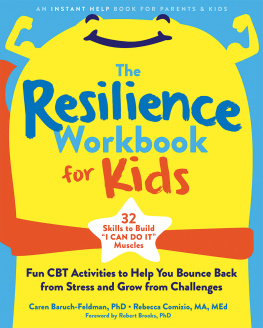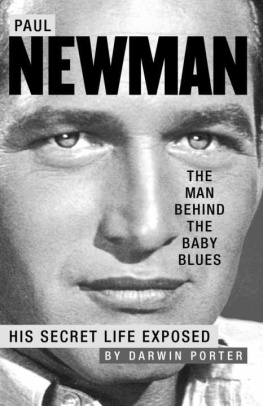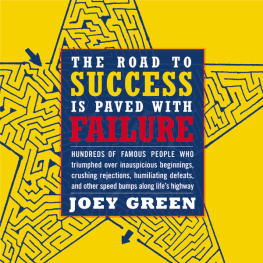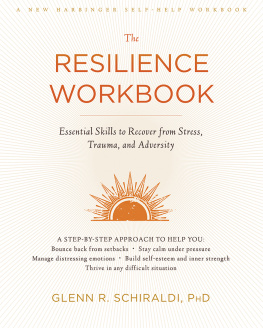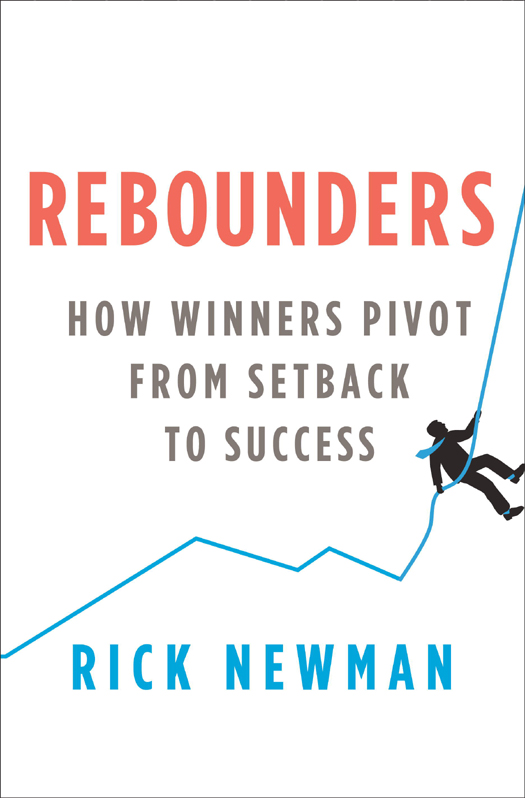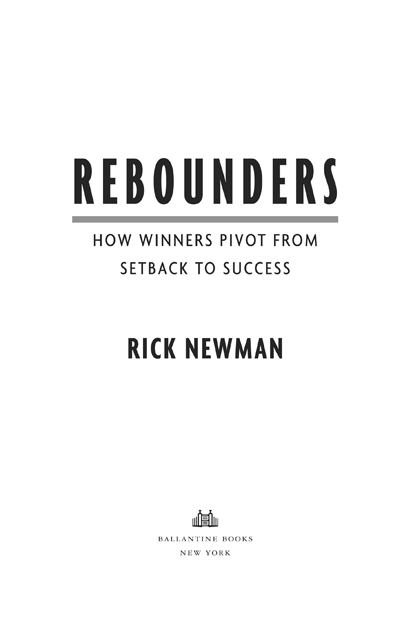Copyright 2012 by Rick Newman
All rights reserved.
Published in the United States by Ballantine Books, an imprint of The Random House Publishing Group, a division of Random House, Inc., New York.
B ALLANTINE and colophon are registered trademarks of Random House, Inc.
Library of Congress Cataloging-in-Publication Data Newman, Rick.
Rebounders : how winners pivot from setback to success / Rick Newman.
p. cm.
eISBN: 978-0-345-52785-1
1. Success in business. 2. self-realization. 3. Career changes. I. Title.
HF5386.N395 2012650.1dc23 2012004143
www.ballantinebooks.com
Jacket design: Rodrigo Corral Design
v3.1_r1
CONTENTS
INTRODUCTION
FOUR SURPRISES ABOUT FAILURE
What am I doing wrong?
This is a lousy question to have to ask yourself. Most people, when faced with a major disappointment, come up with a lot of other explanations before they begin to examine their own culpability. Theres usually an incompetent boss, a backstabbing colleague, a vengeful ex-spouse, or some other handy villain to pin the blame on. If not, then the corporation, the government, the system, or some other monolithic abstraction is an easy culprit. As a last resort, we can always fault plain-old bad luck.
I avoided asking myself that uncomfortable question for yearsbut finally ran out of convincing alternative explanations. I had been divorced for a while. A custody battle had gone against me, forcing me to move two hundred miles, to another city, in order to be near my two kids. That meant giving up a prominent job with a lot of valuable connectionsthe lifeblood of success for a journalist like meand taking a more obscure one where I started with an empty Rolodex. It was a scary decision. The new town was more expensive. I already feared insolvency due to legal bills and child-support payments. The many friends and family members I had been leaning on would suddenly become a long-distance crutch. No matter. I might find myself lonely and broke, but somehow it would all work out, I gamely told myself while trying to recall what, exactly, had been so ennobling about Jobs famous misery. Anyway, it wouldnt last long, I figured. Id find a way to recover and come roaring back, better than before. It would probably even toughen me up.
After a few years, the thrill of character building had completely worn off. I lived in a cluttered rental apartment that could scarcely accommodate my growing kids during the weekends and other times they were with me. It felt shabby, and there was no extra money to do much about it. Many other people I knewincluding my ex-wifeseemed to be in an upgrade phase of life, moving to a bigger house, buying a nicer car, and taking enviable vacations. For me, it was like trudging up a long stairway, gasping for air, while other people were cruising upward on an escalator. Then my industry started to struggle, as news began to appear free on the Internet, and newspapers and magazines began to lose money, then go out of business altogether. Layoffs became routine, and raises a rarity. I networked like a fanatic, worked freelance jobs, and explored other career possibilities, but nothing made much of a difference. As I crested the age of forty, I was falling behind instead of getting ahead, with a set of options that seemed to be narrowing and a deepening disillusionment that wasnt supposed to afflict people like me.
I told myself all the things I was supposed to: I was healthy and so were my kids, a blessing thats impossible to overstate. I was better off than other people in my orbit, especially some colleagues who had been laid off and didnt even have a paycheck anymore. Despite the loneliness of the new city, I had made some terrific new friends. My long-distance family was still supportive. I did some mental math and estimated that 98 percent of the worlds populationAIDS sufferers in Africa, flood victims in Bangladesh, parents with screaming kids standing in endless lines at Disney Worldwere worse off than I was. What was I so unhappy about?
Deflated ambition, thats what. Things werent going the way I expected. My plan to become a world-renowned journalist wasnt developing, and instead I was growing roots as a rank-and-file toiler considered clever, and maybe even talented, but nothing special. There were legions of me, and in a business that was suddenly shrinking and discarding a lot of able professionals, I felt headed for oblivion if I didnt do something to distinguish myself.
I had plenty of rationalizations that explained my predicament. The divorce was a huge distraction. The judge who decided the custody dispute obviously disliked me. The move was a major career disruption. The Internet was way beyond my control. But the setbacks were stacking up, and it began to dawn on me that maybe some of my decisions hadnt been as shrewd as Id thought. I felt that I had been a good dad who deserved better treatment in divorce court, but maybe I had, in fact, been too concerned about my own needs or career. Moving to be near my kids was the right thing to do, and I fortified myself for the rigors of it by convincing myself that I was on some kind of preordained quest, like King Arthur or Harry Potter. But maybe I was fooling myself with false grandiosity. To overcome the career setback, I applied the doctrine of hard work: Keep applying effort until you get what you want. But it wasnt paying off. So after I pondered the awful possibility that maybe I was doing something wrong, and causing my own frustration, I asked myself an even worse question: Was I failing?
It was hard to tell. To some people, failure means you cant feed your kids or get sober long enough to show up for their soccer games, or even hold a job. I was able to do all that. But failure can also mean that you dont fulfill your own expectations, or those of others. That you accomplish less than you should. That you violate the Parable of the Talents, which had stuck with me since Catholic school. I had always been terrified of burying my talents, whatever that meant, because the sad sack who did that in the Bible got banished to the outer darkness, where there was ghastly weeping and gnashing of teeth. Had I somehow buried my talents, by getting into the wrong business or failing to see better opportunities or not trying hard enough? How could I even answer such questions, anyway?
I applied my journalistic instincts to the question, and started to research failure. What I found was more enlightening than I expected. A lot of renowned and successful people had failed at something, occasionally at something big. The lucky ones failed early and learned quickly, while others failed later or took longer to get over it. But the important thing always seemed to be that they learned from failure, and used that knowledge to become better and more successful. I interviewed former Coca-Cola president Don Keough one day and asked him about failure. Built into success is failure, he told me. Ask one hundred people, What have you learned from success? and most of them will just look at you. But ask, What have you learned from failure? and youll get lots of answers. One of his most instructive failures, Keough told me, had been listening to researchers and consultants who insisted the company should launch New Coke in 1985, a move now considered one of the biggest gaffes in corporate history. The whole process made me a professional skeptic, Keough said twenty-four years later. I learned to look beyond data and apply common sense, ask questions beyond the first question.


